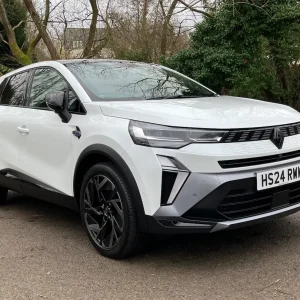Seat’s new Leon range now gets down to 87g/km in five-door, three-door SC and ST estate form with the addition of the Ecomotive model.
Fitted with a 110hp version of the 1.6-litre diesel unit, the Ecomotive is actually more powerful than the regular 1.6 diesel, which offers 105hp and CO2 emissions of 99g/km.
Unlike rivals such as the VW Golf or Ford Focus Econetic, the Leon doesn’t just come in a basic trim level, with the Ecomotive based on the middling SE trim that comes with 16-inch alloys, cruise control, Bluetooth, leather steering wheel and gear lever, and aircon.
The low-CO2 version differs from the regular 1.6 SE in having low rolling-resistance tyres plus an aero package comprising rear and side skirts that combines with the car being lowered by 15mm, while the front grille is also unique to the Ecomotive. The 110hp engine gets a six-speed gearbox rather than the regular 1.6’s five cogs, and the new transmission is accompanied by a 90kg reduction in weight that also helps efficiency.
The Leon trumps the lowest-CO2 versions of the Ford Focus, Peugeot 308, Skoda Octavia, Vauxhall Astra and VW Golf for whole-life cost, due to being cheaper than all bar the Astra, which can’t compete on efficiency, and the poorly specced Focus Econetic, while having a residual value of 36.3% that’s beaten only by the Golf.
The Seat is a practical, efficient, well-built and attractive car, and the Ecomotive’s engine offers strong and refined performance, given the astronomical 85.6mpg official figure.
It should make perfect sense for fleets, but there is a small problem: the regular 1.6 TDI. Yes, it’s 5hp less powerful, but it’s also £990 cheaper and has a better RV, which means it’s 0.8p per mile less to run than the more efficient Ecomotive over three years/60,000 miles, and the BIK payments are just £1 cheaper per month on the Ecomotive for a lower-rate taxpayer. The Ecomotive is a better drive thanks to the 110hp engine and six-speed gearbox, but financially it just loses out to its less-advanced sibling





